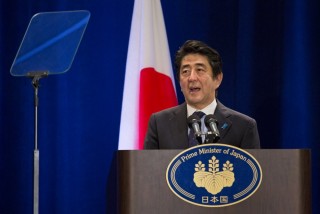▼ Japan's Divided Education Strategy
- Category:Tourism

NYTIMES
Japan’s simultaneous embrace of nationalism and cosmopolitanism is generating ambiguous signals from its education policy makers. They are rewriting textbooks along what they call “patriotic” lines, alienating their Asian neighbors in the process. But at the same time, they are promoting Japanese universities as globalized and open, in a bid to compete internationally.
“There is an obvious contradiction between Japan’s rightward shift on education policy and its strivings to internationalize,” said Thomas Berger, a professor at Boston University and an expert on Japanese politics.
“Japanese textbook policy is increasing tensions with Asia, undermining the willingness of Japanese to study in neighboring countries and of foreigners to come to Japan,” Prof. Berger said. “Education policy is caught on the horns of a dilemma: On the one hand, there are powerful economic and political pressures that favor internationalization — yet, in reality, Japan has been moving in the opposite direction.”
Following a rare term out of office, Japan’s conservatives returned to power last year with Prime Minister Shinzo Abe at their head and an agenda to recast wartime history with a less apologetic tone. A more critical version of history, which casts Japan as an aggressor in World War II, has been replaced by material that is more “patriotic.”
Critics say the new government is trying to impose a rightist agenda on the nation’s schooling system. They point out, for example, that new state-sanctioned text books play down the death toll of the Nanjing massacre in China, which is now referred to as an “incident.”
There has been some resistance to the changes, but by and large, education boards across Japan are accepting them. One of the first boards to adopt the new textbooks was that of Yokohama, the country’s second-largest city.
At the same time, a formidable drive is underway by the same conservatives to globalize Japan’s inward-looking education system. Mr. Abe has stated that he wants 10 Japanese institutions to rank among the world’s top 100 universities. Currently only two make the cut in prominent lists like that of Times Higher Education: the University of Tokyo and Kyoto University.
The government’s plans include strengthening teaching staffs at universities by hiring foreign professors, initiating a certified evaluation system and expanding resources.
There is also a move to improve bilateral relations with the very countries that the new textbooks have irked — the United States, China and South Korea.
Japan’s Asian neighbors fear that its new emphasis on patriotism will lead to nationalism and a teaching of history that obfuscates wartime atrocities. They also accuse Mr. Abe of reviving past militarism. Tokyo is “attempting to deny and even beautify” the country’s history of military aggression, a statement from China’s Foreign Ministry said this year.
China and Japan — which are also facing off over territorial claims — both say that biased history textbooks and education are among the causes of a deep-grained hostility that threatens more than 50 years of peace between them.
Continue reading the main story
Even allies like the United States are dismayed at the new textbooks, said Mindy Kotler, director of Asia Policy Point, an independent research center in Washington.
“Disappointment stems from the realization that Japan’s leaders hold a retrograde, discredited and offensive view of not just history, but also of race, women, war, peace and reconciliation,” she said. “Simply put, the issue is whether or not Japanese decision makers are capable of sound judgment.”
But the government says Japan has done enough to satisfy its neighbors’ sensitivities over Japanese aggression during the war years.
The education minister, Hakubun Shimomura, denies that the government wants to enforce a particular view of history. He says Japan’s textbook examination is undertaken fairly and impartially, “based on expert and academic deliberations.” But he concedes he is looking for a more patriotic take on Japan.
“History has positive and negative aspects,” Mr. Shimomura said in an email. “We believe it is important to teach a balance of the good as well as the bad parts so that children can be proud of and have confidence in our country’s history.”
- October 31, 2014
- Comment (1)
- Trackback(0)


casino online Web Site- December 11, 2022